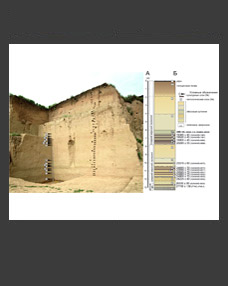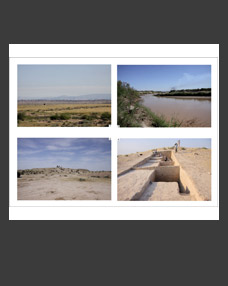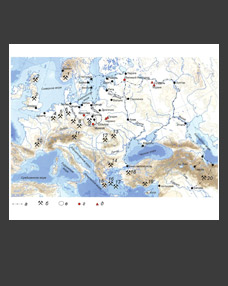Evgenia G. Zastrozhnova (Pankratova)
St. Petersburg Branch of the Archive of the RAS, St. Petersburg, Russia
E-mail: pankratova0484@yandex.ru
Keywords: history of science, archival materials, political repression, Mesolithic, archaeological excavations, geology, palaeontology, Ukhtpechlag/Ukhtizhemlag, GULAG.
Until the present, the period of the ten-year imprisonment of archaeologist and scythologist Grigory Borovka in Ukhta-Pechora/Ukhtizhem Camp (Ukhtpechlag) of the OGPU/GULAG in 1931–1941, to which he was sentenced during the investigative process of the “Academic case”, has remained unexplored in Russian historiography. Previously unpublished materials from the Archive of the Department of Special Funds of the Information Centre at the Ministry of Internal Affairs of the Komi Republic in Syktyvkar and the funds of the Ukhta Museum Complex in Ukhta made it possible to restore the details of the researcher’s life and tragic death in custody in 1932–1942. Having done the most difficult winter journey under guard from Leningrad to the settlement of Chibyu, upon arrival at the camp G.I. Borovka was enrolled in the camp’s geological service. Under the guidance of the leading geologist of Ukhtpechlag N.N. Tikhonovich, Borovka was able to master a new profession to become a distinguished expert in the field of macrofauna of the Ukhta Devonian. Collecting surface material along the terraces of the Ukhta River, G.I. Borovka found several Mesolithic sites, which are currently included in the archaeological heritage of the Komi Republic. The experience of restoring the scientific biography of researchers in humanities – prisoners of GULAG camps is important for expanding the source base, scientific and methodological basis for further research and the formation of commemorative practices.
DOI: 10.31857/S0869606325010143, EDN: BGGKIK







